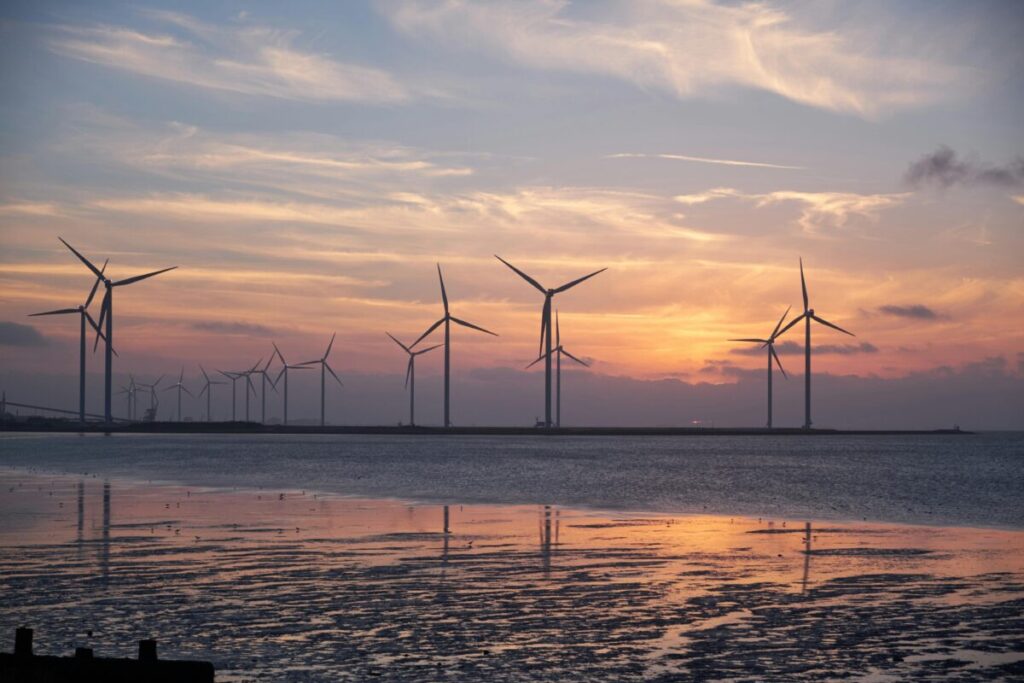The University of Manchester has been awarded funding by the Engineering and Physical Science Research Council (EPSRC) for a project aiming to improve understanding of the energy yield from offshore wind projects.
The POUNDS (Prediction Of UnqualifieD losseS from offshore wind farm wakes) project aims to understand how building offshore wind developments in close proximity to each other may impact the energy yields that can be gained from these developments.
When large groups of wind turbines are built near to each other, they create “wakes” – channels of slower-moving wind – behind them. These wakes have been observed extending as far as 65km away from turbines and are increasingly impacting the performance of other nearby wind farms.
The project, funded by the ESPRC’s Supergen Offshore Renewable Energy Impact Hub, will run for 12 months and will use advanced weather forecasting models to model the performance of wind farms in UK waters. The scientists will assess both the wind farms that are currently operational as well as thousands more wind turbines that are expected to be running by the year 2030. This will be compared to real-world data to establish the accuracy of the model as well as the impacts of wind wakes on predicted energy yield.
Project lead Dr Pablo Ouro, research fellow in the Department of Civil Engineering and Management at The University of Manchester, said: “Achieving the target of 43-50 GW of deployed offshore wind farms by 2030 is crucial for net zero and energy security, but reduction in energy prediction due to wind farm wakes must be addressed.”
“Our POUNDS project is key to overcoming these challenges, informing policymakers and project developers about strategies to better quantify these losses. Similar initiatives of national importance have been developed in Germany, The Netherlands and the US, and our project aims to support the whole UK offshore wind industry.”
The research will be carried out in collaboration with leading offshore renewable energy institutes, industry experts, and policymakers, including the Offshore Renewable Energy (ORE) Catapult, Arup, EDF, RWE, and the Crown Estate, which manages the UK’s seabed.
Ken Kasriel, energy economist with Offshore Renewable Energy Catapult, said: “The UK government’s recent Clean Power 2030 Action Plan’s identification of inter-farm wind wakes as an area of focus highlights this issue’s importance. This study could make important contributions towards better understanding and planning around them.”






